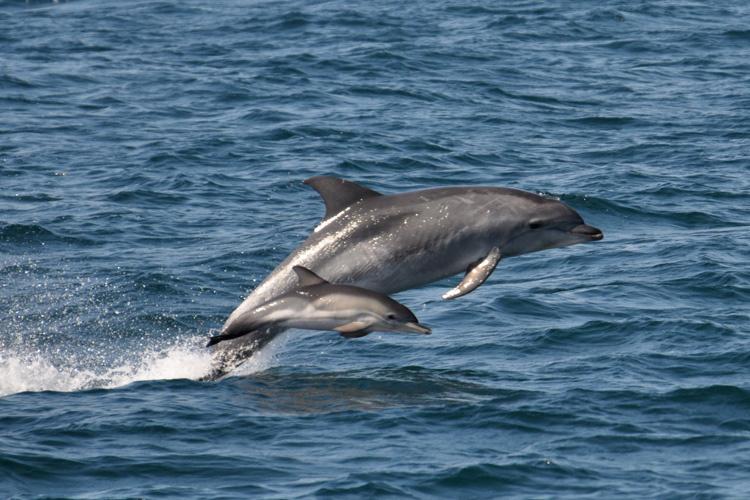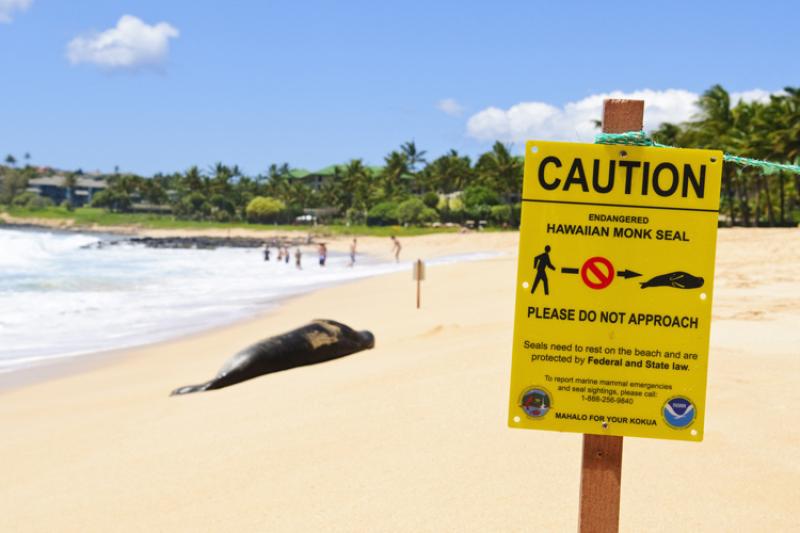It is illegal to feed or harass wild dolphins. We encourage you to observe them from a distance of at least 50 yards (150 feet) for the following reasons:
-
Dolphins have a reputation for being friendly, but they are actually wild animals who should be treated with caution and respect. Interactions with people change dolphin behavior for the worse. They lose their natural wariness, which makes them easy targets for vandalism and shark attack.
-
Dolphins are hunters, not beggars, but when people offer them food, dolphins (like most animals) take the easy way out. They learn to beg for a living, lose their fear of humans, and do dangerous things. For example, they may:
-
Swim too close to churning boat propellers and suffer severe injuries.
-
Associate people with food and die after becoming entangled with fishing hooks and lines.
-
Get sick from eating bait and human food such as beer, pretzels, candy, and hot dogs.
-
-
Dolphin scientists have proof of injuries. Research shows that feeding wild dolphins disrupts their social groups, which threatens their ability to survive in the wild. Young dolphins do not survive if their mothers compete with them for handouts and don't teach them to forage.
-
Dozens of bites have been reported, and people have been pulled underwater. For example, a woman who fed a pair of dolphins and then jumped in the water to swim with them was bitten. "I literally ripped my left leg out of its mouth," she said during her week-long stay in the hospital.
-
Dolphins are not water toys or pets. The "Flipper myth" of a friendly wild dolphin has given us the wrong idea. Flipper was actually a trained, captive dolphin who did not bite the hand that fed him. Truly wild dolphins will bite when they are angry, frustrated, or afraid. They are disturbed when people try to swim with them. Dolphins who have become career beggars can be pushy, aggressive, and threatening when they don't get the handout they expect.
Let the Wild Ones Stay Wild
Feeding or attempting to feed wild dolphins is prohibited under the Marine Mammal Protection Act and implementing regulations. Violations can be prosecuted either civilly or criminally and are punishable by fines of up to $100,000 and/or up to 1 year in jail.




